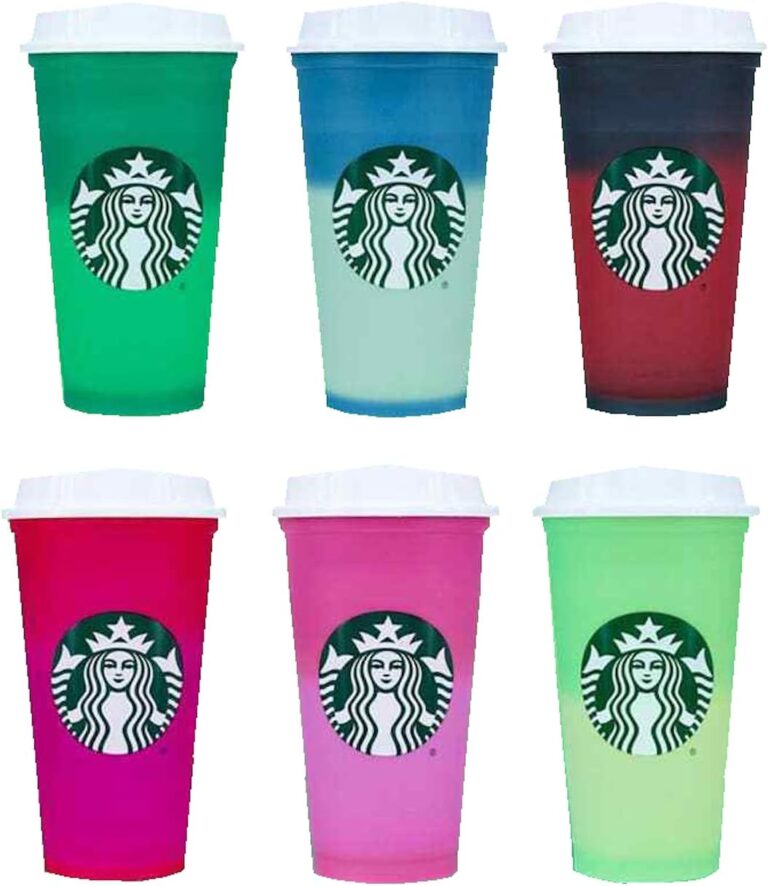In this article, we will talk about content brands that make a positive impact through every purchase you make. You’ll learn about these brands and how they are using their business to contribute to society. From environmental initiatives to social causes, these brands are doing their part to make the world a better place. So, let’s explore some inspiring examples and see how your next purchase can make a difference.

Introduction
Have you ever wondered if the brands you support truly make a difference in the world? In recent years, there has been a growing movement of Brands That Give Back – companies that go beyond profit-making and strive to create a positive impact on society. These brands have realized the power they hold to make a difference and have embraced the idea of integrating social responsibility into their business models. In this article, we will explore the concept of Brands That Give Back, understand their importance, examine some examples, and discuss the impact they have on individuals, communities, and the environment. We will also delve into consumer behavior, their influence on brand reputation, and address any challenges and criticisms faced by these brands. Finally, we will provide you with tips on how to identify and support Brands That Give Back and explore the future of this socially conscious movement.
Understanding the Concept of Brands That Give Back
Brands That Give Back are companies that prioritize social responsibility and actively contribute to making a positive impact on society and the environment. These brands consider the societal and environmental implications of their actions and aim to align their business practices with ethical and sustainable values. By doing so, they utilize their influence and resources to address various social and environmental issues in a meaningful and impactful way.
How Brands That Give Back Make a Positive Impact
Brands That Give Back play a crucial role in addressing social and environmental challenges by implementing practices that tackle these issues head-on. They are proactive in their approach and make conscious efforts to make a difference. For example, some brands focus on sustainable practices, ensuring that their products are produced in an environmentally friendly manner. This could involve using renewable energy sources, reducing waste, and implementing eco-friendly packaging solutions. By prioritizing sustainable practices, these brands contribute to the fight against climate change and environmental degradation.
Other Brands That Give Back choose to support local communities through charitable initiatives. They invest in projects that improve access to education, healthcare, and basic amenities for marginalized communities. By doing so, they bridge the gap between privileged and disadvantaged communities, empowering individuals to lead better lives and fostering stronger, more inclusive societies.
Furthermore, many Brands That Give Back donate a portion of their profits to social causes. By dedicating a percentage of their revenue to charitable organizations, these brands contribute to the funding of critical programs and initiatives that address various social issues such as poverty, homelessness, healthcare disparity, and education. Such financial support enables these organizations to make a more significant impact and create positive change at scale.
The Importance of Brands That Give Back
Supporting Brands That Give Back is not just a feel-good gesture; it is essential for the well-being of our planet and the advancement of society. These brands exemplify the values of compassion, empathy, and responsibility. Purchasing from them means participating in a larger movement towards a better world. Here are a few reasons why supporting Brands That Give Back matters:
1. Creating Lasting Solutions:
Brands That Give Back truly understand the root causes of various social and environmental issues. They dedicate their resources to developing sustainable and long-term solutions rather than applying band-aid fixes. By supporting them, you contribute to the creation of lasting change and help break the cycle of poverty, inequality, and environmental degradation.
2. Empowering Individuals and Communities:
Brands That Give Back directly impact individuals and communities in need. By allocating resources towards education, healthcare, and poverty alleviation, they empower individuals to grow, prosper, and lead better lives. This empowerment has a ripple effect, as uplifted individuals can positively influence their communities, creating a more equitable and prosperous society.
3. Encouraging Ethical Business Practices:
By supporting Brands That Give Back, you send a clear message to other companies that ethical business practices matter. This encourages other brands to adopt similar strategies and make a positive impact themselves. As more companies embrace social responsibility, business practices become more ethical and sustainable as a whole.
4. Driving Innovation:
Brands That Give Back often lead the way in terms of innovation and creativity. They are not afraid to challenge conventional practices and find new ways to tackle social and environmental issues. By supporting them, you contribute to the growth and development of innovative solutions that can benefit society as a whole.
5. Cultivating Conscious Consumption:
Consumer behavior plays a vital role in shaping the market. By consciously choosing to support Brands That Give Back, you help create a demand for products and services that prioritize social and environmental responsibility. This, in turn, encourages more brands to adopt similar practices and ensures that compassionate consumerism becomes the norm rather than the exception.

Examples of Brands That Give Back
There are countless Brands That Give Back, each with their unique ways of making a positive impact. Here are three examples that illustrate the diverse range of approaches these brands take:
Brand A: Giving Back to the Environment through Sustainable Practices
Brand A is an outdoor clothing company that places a strong emphasis on sustainability and environmental conservation. They meticulously source their materials from eco-friendly suppliers, ensuring that their garments are made from organic, recycled, or responsibly sourced fabrics. Additionally, Brand A supports reforestation projects, committing to planting a tree for every item sold. This not only offsets their carbon footprint but also contributes to the restoration of forests and natural habitats.
Brand B: Supporting Local Communities through Charitable Initiatives
Brand B is a coffee company that believes in giving back to the communities from which they source their beans. They collaborate with local farmers to improve their livelihoods, paying fair prices for their crops and providing training in sustainable farming practices. Additionally, Brand B invests a portion of their profits in community development projects, such as building schools and healthcare centers. By directly supporting local communities, Brand B ensures that their business positively impacts the lives of those who contribute to their success.
Brand C: Donating a Portion of Profits to Social Causes
Brand C is a popular shoe company known for its high-quality products. They have made a commitment to donating 10% of their profits to various social causes. Each year, they select different organizations to support, focusing on issues such as poverty alleviation, education, and healthcare. Brand C believes that by leveraging their success, they can make a significant impact on society and inspire other companies to adopt similar giving-back initiatives.
How Brands That Give Back are Making a Difference
Brands That Give Back make a tangible and measurable difference in society through their commitment to social responsibility. Here are some specific ways in which these brands are contributing to positive change:
1. Addressing Global Challenges:
Brands That Give Back tackle pressing global challenges such as climate change, poverty, and inequality head-on. They actively engage in projects and initiatives that address the root causes of these challenges, providing solutions that create a lasting impact.
2. Spreading Awareness:
By incorporating social responsibility into their branding and marketing efforts, Brands That Give Back raise awareness about social and environmental issues. They leverage their platforms to educate and inspire consumers, encouraging them to join the movement and make conscious choices.
3. Collaboration and Partnerships:
Brands That Give Back often collaborate with nonprofit organizations and other businesses to amplify their impact. These collaborations result in innovative solutions and create a stronger collective force for positive change. By working together, Brands That Give Back create a network of support that allows them to achieve more than they could individually.
4. Philanthropy and Financial Support:
Brands That Give Back invest their profits in various social causes, providing financial support to organizations that are addressing critical issues. This financial support enables these organizations to expand their reach, implement impactful programs, and effect positive change at scale.
Consumer Behavior and Brands That Give Back
Consumer behavior plays a significant role in shaping the impact Brands That Give Back can make. Many individuals today are actively seeking brands that align with their values and actively contribute to society. This preference for Brands That Give Back stems from several factors:
-
Emotional Connection: Consumers are drawn to brands that evoke positive emotions and align with their personal values. Brands That Give Back tap into the desire to make a difference and create an emotional connection with their consumers. By supporting these brands, consumers feel a sense of fulfillment and meaning with every purchase.
-
Identity and Self-Expression: Consumer choices often reflect their self-identity and values. Supporting Brands That Give Back allows individuals to express their values and beliefs through their purchasing decisions. It becomes a way of expressing one’s identity as a socially conscious individual.
-
Ethical Considerations: Individuals today are more aware of social and environmental issues. They actively seek products and services that are produced ethically and sustainably. Brands That Give Back provide an opportunity for consumers to align their purchasing decisions with their ethical considerations and contribute to positive change.
-
Empowerment and Hope: By supporting Brands That Give Back, consumers feel empowered, knowing that they are making a difference through their purchasing power. It instills a sense of hope that their actions can contribute to a better world.
How Brands That Give Back Build a Positive Reputation
Brands That Give Back often enjoy a positive reputation among consumers, employees, and stakeholders. Their commitment to social responsibility contributes to a favorable brand image and strengthens their relationships with their target audience. Here’s how they build a positive reputation:
-
Corporate Social Responsibility (CSR): Brands That Give Back prioritize CSR, ensuring that their actions align with their stated values. They transparently communicate their initiatives and progress, building trust and credibility with their audience. This commitment to CSR positions them as responsible and trustworthy brands.
-
Employee Engagement: Brands That Give Back foster a sense of purpose among their employees by involving them in their giving-back initiatives. This engagement leads to increased employee satisfaction and loyalty, as employees feel proud to work for a company that makes a positive impact.
-
Advocacy and Word-of-Mouth: Satisfied consumers and employees become advocates for Brands That Give Back. They willingly share their positive experiences with friends, family, and colleagues, contributing to positive word-of-mouth. This advocacy helps these brands reach a wider audience and reinforces their positive reputation.
-
Partnerships with NGOs and Nonprofits: Collaborations with reputable nonprofit organizations and NGOs further enhance a brand’s reputation. These partnerships validate their commitment to making a difference and demonstrate their dedication to finding solutions collaboratively.
Challenges and Criticisms of Brands That Give Back
Despite the positive impact Brands That Give Back have, they are not exempt from challenges and criticism. Some of the challenges faced by these brands include:
-
Greenwashing: Greenwashing refers to brands falsely claiming to be sustainable or socially responsible for marketing purposes. Brands That Give Back need to ensure transparency and authenticity in their practices to avoid skepticism and maintain trust from consumers.
-
Scalability and Impact: As Brands That Give Back grow, they face challenges in scaling their impact. It becomes crucial for these brands to find innovative ways to maintain and increase their impact as they expand to reach broader audiences.
-
Balancing Profit and Purpose: Brands That Give Back must strike a balance between profitability and making a positive impact. It can be challenging to ensure financial sustainability while dedicating resources to social and environmental initiatives.
-
Accountability and Measurement: Brands That Give Back need to be transparent and accountable for their actions. This includes measuring and reporting the impact they are making and continuously improving their strategies to maximize positive outcomes.
-
Social Impact as Marketing Strategy: Critics argue that some brands use social impact solely as a marketing strategy to attract customers rather than genuinely making a difference. It is essential for Brands That Give Back to effectively communicate their values and contributions to avoid being seen as opportunistic.
Tips for Identifying and Supporting Brands That Give Back
Identifying and supporting Brands That Give Back is essential to contribute to positive change. Here are some tips to help you choose impactful brands:
-
Research and Due Diligence: Conduct research to identify brands that align with your values. Look for transparency and authenticity in their social responsibility initiatives. Consult reliable sources such as certifications, third-party assessments, and publications focusing on sustainable and ethical businesses.
-
Evaluate Their Practices: Assess a brand’s commitment to giving back by looking at their supply chain practices, environmental initiatives, charitable partnerships, and employee engagement. Brands That Give Back will have clear documentation and reporting on their impact.
-
Support Local and Small Businesses: Small and local businesses often have a strong connection to their communities and are more likely to prioritize social responsibility. By supporting them, you contribute directly to the growth and betterment of your local community.
-
Encourage Responsible Practices: Engage with brands and express your expectations for responsible business practices. Frequent their social media channels, provide feedback, and share your own experiences to encourage them to continue making a positive impact.
-
Spread the Word: Share your positive experiences with Brands That Give Back through word-of-mouth, social media, and reviews. This helps raise awareness and encourages others to support these brands.
The Future of Brands That Give Back
The future of Brands That Give Back looks promising as society becomes increasingly conscious of its impact on the world. We can expect the following trends and innovations:
-
Integration into Business Models: Brands That Give Back are likely to integrate social and environmental responsibility into their core business models rather than treating it as an add-on. This ensures sustainability and makes giving back an inherent part of the brand’s DNA.
-
Technology and Transparency: Advancements in technology, such as blockchain, will enable increased transparency and accountability in supply chains. This will allow consumers to trace the journey of products and ensure that they are produced ethically and sustainably.
-
Collaboration for Greater Impact: Brands That Give Back will continue to collaborate with nonprofit organizations, government agencies, and other businesses to maximize their collective impact. These collaborations will result in comprehensive solutions that address complex systemic challenges.
-
Ethical Investing and Impact Measurement: Investors are increasingly considering a company’s social and environmental impact when making investment decisions. Brands That Give Back will need to provide clear and measurable impact measurements to attract ethical investors and ensure accountability.
-
Social Entrepreneurship: More entrepreneurs are starting businesses with a purpose beyond profit. Social enterprises are dedicated to addressing social and environmental issues while operating as sustainable businesses. The growth of social entrepreneurship will drive the Brands That Give Back movement further.
Conclusion
Brands That Give Back have the power to transform society, the environment, and the way we conduct business. Through their commitment to social responsibility, these brands make a positive impact on individuals, communities, and the planet. By supporting Brands That Give Back, you actively contribute to positive change with every purchase. It is vital for consumers to be informed and make conscious choices, utilizing their purchasing power to support brands aligned with their values. Together, we can shape a socially conscious consumer market, where Brands That Give Back become the norm rather than the exception. So, the next time you make a purchase, remember – it’s not just a transaction; it’s an opportunity to make a difference. Choose to support Brands That Give Back and be a force for positive change.











